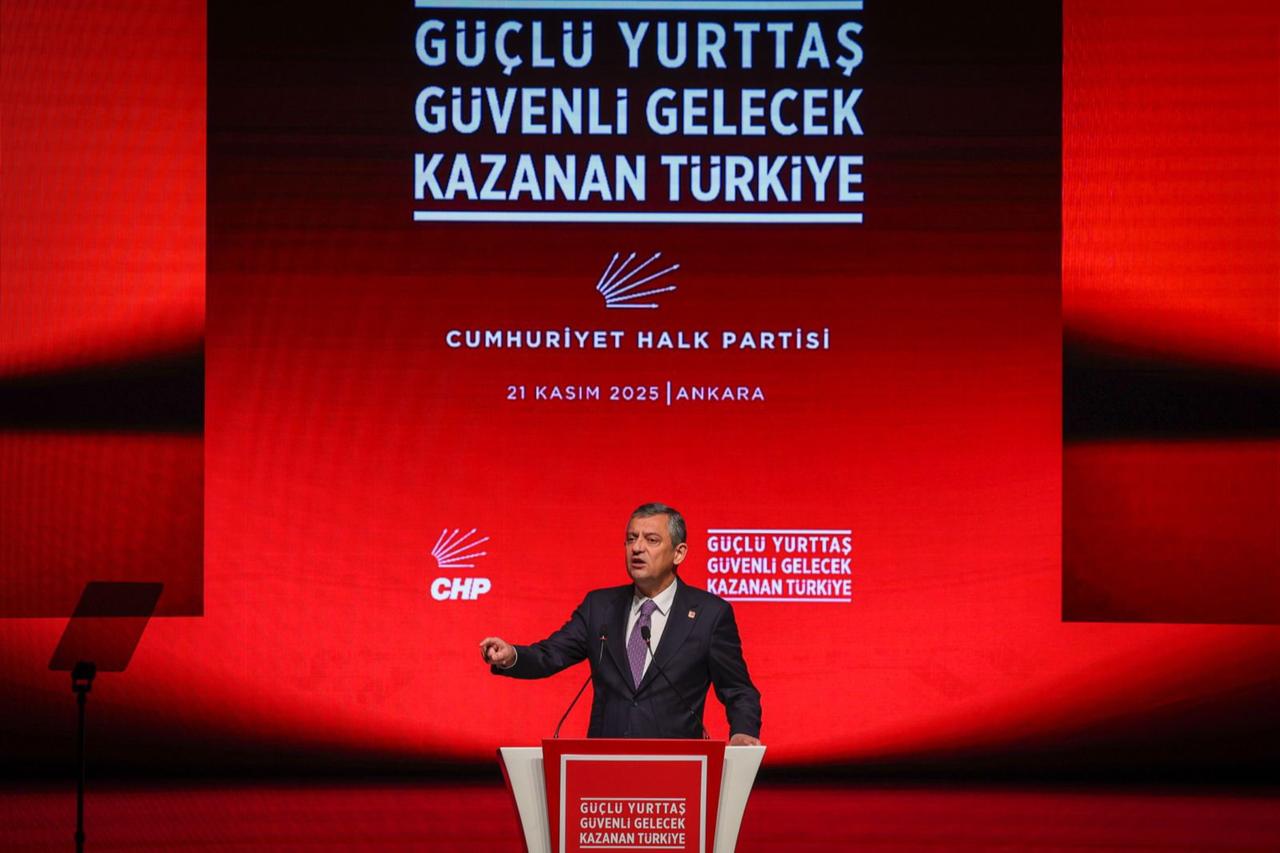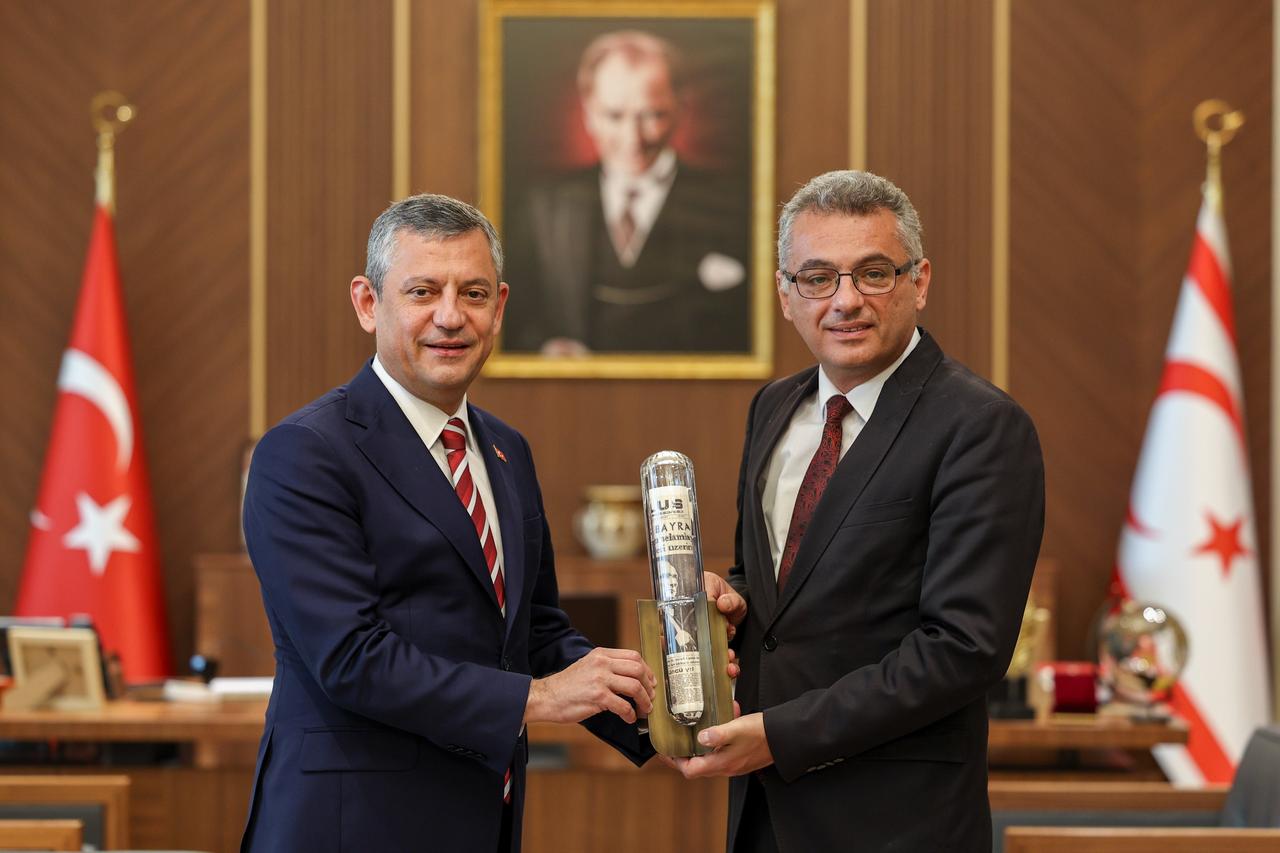
On Nov. 21, the main oppositon Republican People’s Party (CHP) released the draft of its new party program ahead of its 39th Congress, presenting a comprehensive roadmap under four pillars: democracy and governance, development, social state, and foreign policy–security–resilience.
Three pages in a 134-page document, the section on foreign policy outlines a commitment to restoring institutional diplomacy, transparency, accountability, and enhanced oversight mechanisms across foreign policy institutions.
A key element noted is rebuilding diplomatic capacity through merit-based recruitment and long-term investment in young diplomats, renewing the cadres of foreign affairs.
As the party currently ranks first in the polls, the document carries the potential to shape geopolitical realities in the years to come, and it places deeper integration with the West at the core of its agenda.
The draft program’s clearest foreign policy theme is its commitment to repairing relations with the European Union and realigning Türkiye with the Western alliance. This signals a return to an older diplomatic language centered on integration with Euro-Atlantic institutions.
However, Türkiye’s public discourse has shifted over the past decade. The electorate has grown accustomed to a Türkiye that conducts cross-border operations, leverages its defense industry for regional influence, and balances relations with diverse actors ranging from Russia to the Gulf.
At a moment when multiple global power vacuums are emerging, particularly in areas close to Türkiye’s borders, the program offers few indications that the party intends to pursue an active role in shaping regional dynamics.
The belief that improved relations with Western partners can resolve strategic challenges suggests a more traditional reading of global politics and may not fully match today’s domestic expectations.
CHP’s foreign policy language reflects an inward-looking, stability-oriented approach, shaped largely by bureaucratic reflexes and older diplomatic norms.
The party positions Türkiye as a responsible team player within existing structures rather than a game-maker seeking to shape emerging regional orders.
At the program’s launch, the chair, Ozel, said, “Foreign policy will be conducted within an institutional framework; it will not drift into an unserious model run through sons, sons-in-law, or brothers-in-law.”
Indirectly criticizing the current governance style of the world’s superpower, the United States, the criticism is aimed at the Turkish government’s reliance on leader-level diplomacy, which has allowed Türkiye to respond quickly to shifting global conditions.
Despite the challenges of it in the past, the Erdogan-Trump ‘bromance,’ for instance, recently brought Türkiye brand new deals such as a nuclear agreement, Ankara’s involvement in Gaza affairs, and being granted a seat at the table by the very actor who sets the rules of the game, which is notably known in Türkiye as being shielded with “legitimacy.”
The draft program, on the other hand, does not fully address Türkiye’s strategic autonomy or offer a clear roadmap for navigating a world defined by fluid alliances. Instead, it relies on the assumption that repairing relations with traditional partners will create stability.
Yet, more importantly, even assuming that a deeper alignment with Europe is the correct course in foreign policy, the CHP gains little from making it a central pledge, as ties with the EU are already improving, especially on a momentum built on defense & security, meaning the promise doesn’t deliver much electoral advantage.

Although neither issue is necessarily more important than the other, the fact that the Foreign Policy section offers a discussion of the Cyprus question while mentioning Syria only in the context of migration suggests that the CHP still has difficulty breaking away from its traditional positions, at least when it comes to foreign policy.
Türkiye’s most complex and immediate regional challenge, Syria’s ongoing instability with armed actors and shifting territorial dynamics, receives only indirect treatment.
A domain in which the opposition party has long considered itself strong, the Cyprus issue gets highlighted. Presenting “active diplomacy” on the issue as if it were the only missing ingredient for a solution, the text signals that the party’s new image still relies on the familiar components of its old foreign-policy outlook.
The main opposition leader, Ozgur Ozel, enters this debate with significant political momentum following the party’s success in local elections and its return to first place nationally after nearly two decades.
His background outside the typical secular CHP elite makes him more appealing in some policy areas and eliminates the bias of a typical foreign policy understanding coming from his party. Yet the draft seemingly remains as an arena where the party’s institutional reflexes dominate.
It also fails to develop a new discourse by playing on points that the party bases its values on, such as ‘reopening of the military hospitals.’
As a result, the program reflects a measured and bureaucratic tone rather than a bold or transformative foreign policy agenda.
In a landscape where security concerns, regional shifts, and middle-power competition increasingly influence voters, this cautious approach may limit the party’s ability to project itself as a governing alternative.
For a party with renewed political ambition, the foreign policy vision remains noticeably restrained, signaling continuity with older strategic thinking rather than engagement with the emerging regional anxieties shaping Türkiye’s future.